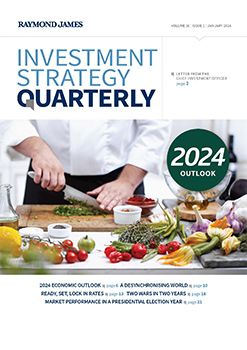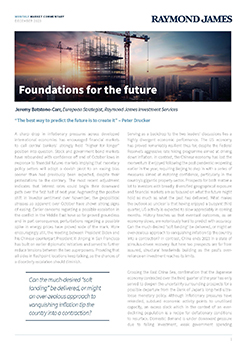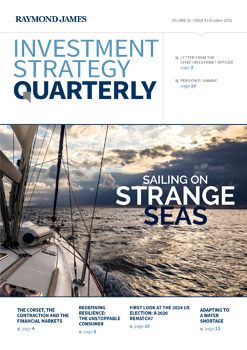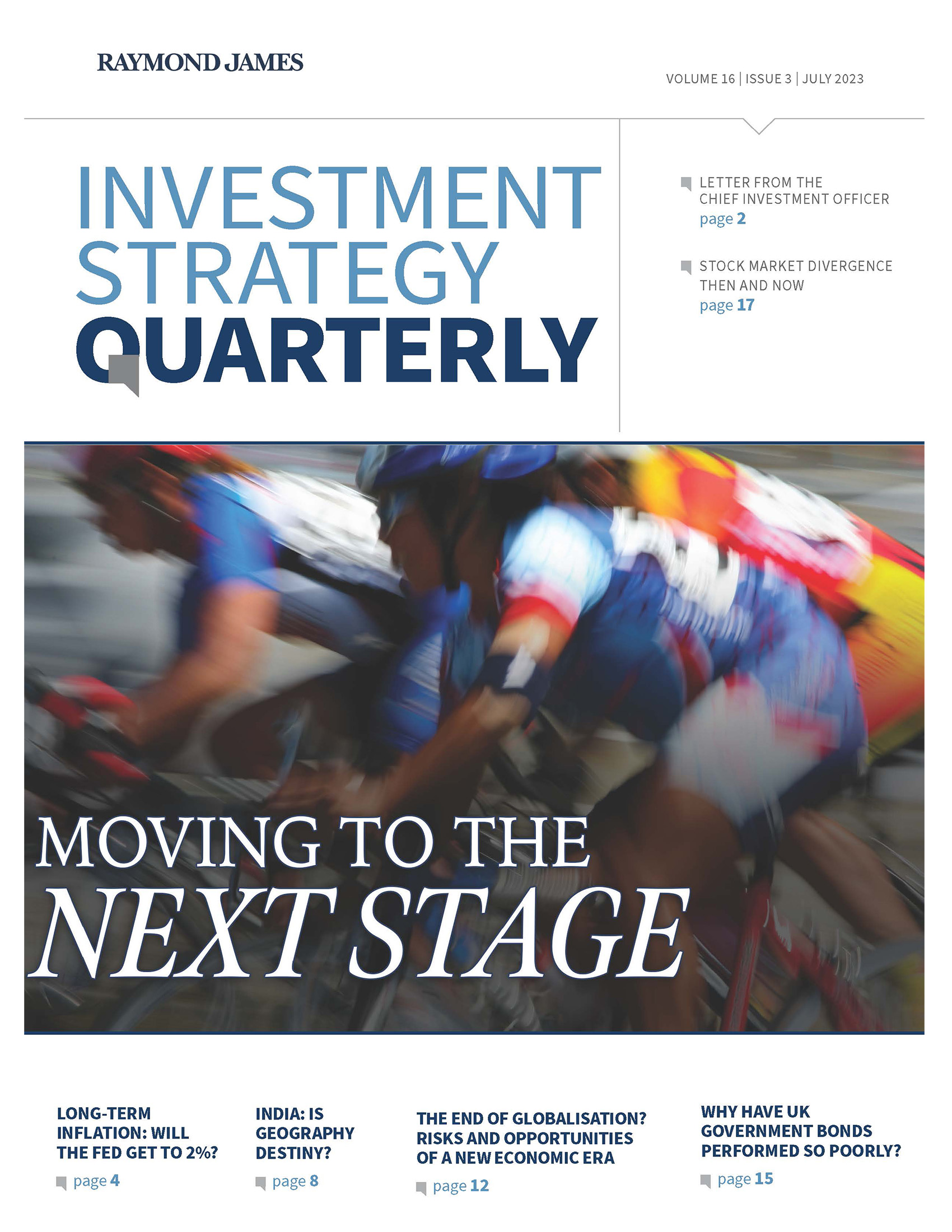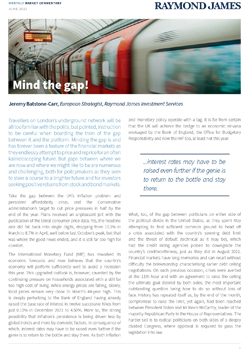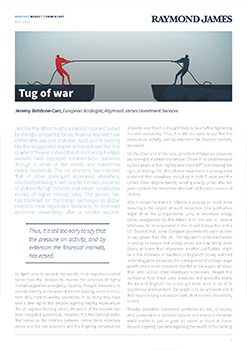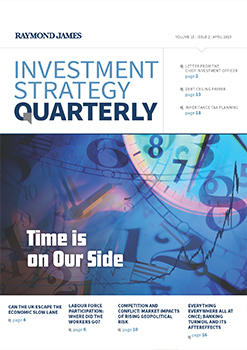The first Investment Strategy Quarterly of the year discusses 10 themes for 2024, plus a look at bonds, energy security, and market performance in a presidential election year. Read all this and more in Investment Strategy Quarterly: 2024 Outlook.
Foundations for the future
Autumn Statement Analysis 2023
Clouds of war shroud financial markets
Sailing on strange seas
Great Expectations
July has proved a strong month for investors in the financial markets, particularly across the stock markets of Western developed economies. Returns were generated against a backdrop of economic resilience, especially in the United States where, despite the Federal Reserve having raised interest rates in excess of 5.00%-points in little over a year, growth has persisted and even exceeded expectations.
Moving to the Next Stage
This year marks the 110th edition of the Tour de France, the most prestigious bicycle race in the world. And like the markets, the Tour is always challenging—and evolving. The three-week, grueling 2,200+ mile route changes every year and, surprisingly, starts in different countries—this year in Spain versus the UK, the Netherlands, Germany, Belgium, and Denmark over the previous five years! The point is, just like the Tour, economic and market cycles have different starting points, and no two routes are alike.
Mind the gap!
Tug of war
Time is on Our Side
Our latest Investment Strategy Quarterly provides informed insights into a turbulent market with analysis on economic situations at both home and abroad, the questions facing policymakers and investors, plus reasons to be optimistic in the long term. Read all this and more in Investment Strategy Quarterly: Time is on Our Side.

